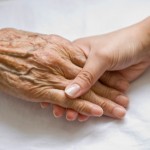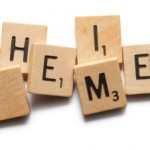In 1990 I needed neurosurgery. The mass which was removed turned out to be benign, but I had a major post-op bleed and was left with a considerable scar on my right frontal cortex. Up to that point I'd had, as I often said, "the fourth best memory in the family."
Afterwards my brain worked well enough. But I had considerable problems moving information from short-term to long-term memory. So when I bought the Harvard Medical School booklet mentioned in my last post, I was intrigued by the research that has been done on the subject and how it applied to me and to others, especially as we age.
Most of us worry about dementia; the Aging, Demographics and Memory Study figures, published in 2007 looking at people 71 or older, estimated there were 3.9 million people with dementia in the US in 2002. Of that group, 2.4 million had Alzheimer's disease. The crucial factor, I thought, was the prevalence, the total number living with a disease, went up with age from 5% of people in the 71 to 79 year old group to 37.4% in those 90 and above. And there are lots more of us living to that age than before.
It's become clear that having a stroke, what used to be termed a "cerebrovascular accident" (CVA), is another major route for developing dementia. A 2010 study in the journal Stroke describes dementia associated with "first-ever stroke" in a French city of 150,000 inhabitants over a 24-year period. Out of nearly 4,000 patents suffering a CVA, 20.4% had dementia. Risk factors for the outcome included age, diabetes, prior heart attack, and atrial fibrillation (an irregular heart rhythm associated with a risk of emboli, blood clots that can be dislodged, travel to the brain and clog an artery).
These figures clearly included those with new-onset dementia, but, because of the study's design, didn't exclude those who may have had the problem prior to their stroke. Nonetheless a history of stroke nearly doubles the prevalence of dementia in people over 65.
Another group with an increased incidence of neurocognitive (thinking/memory) issues includes the roughly 40 million infected with HIV. At least 30% of that group have associated brain function impairment ranging from minor or mild symptoms to full-fledged dementia. With the newer anti-retroviral drug treatments, the incidence (new cases) of HIV-associated dementia (HAD) has markedly decreased, although with people living longer with the virus, overall there are more HAD patients.
There is a roadblock between the circulation and the brain itself, the blood-brain barrier (BBB), which serves, in usual circumstances, to prevent microbes from invading the central nervous system. The human immunodeficiency virus can penetrate the BBB in several ways: one of which is by hitching a ride inside one kind of immune cells called monocytes. This is termed a "Trojan Horse" method.
Another disease, affecting 1.3 million Americans, is termed Lewy Body Dementia (LBD). It's closely associated with the dementia seen in Parkinson's disease. Both have deposits of an abnormal protein that causes difficulties in brain function. In LBD these proteins are found in several areas of the brain; with Parkinson's they are more localized.
So why is it important to know what kind of dementia a person has?
Some types respond poorly to medications that may help other forms, at least to a limited extent. And LBD patients may be helped by meds that offer less benefit to Alzheimer patients.
It's not always easy, but an experienced neurologist can often sort out which person has which disease.





